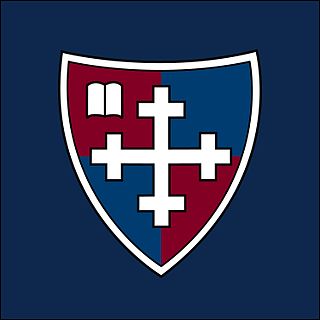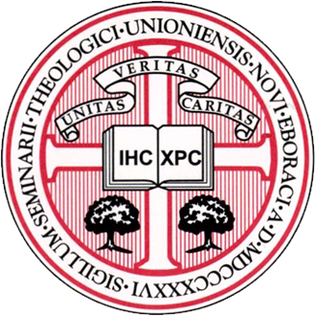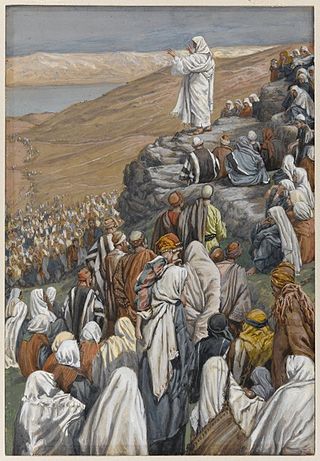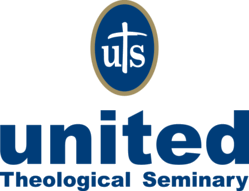Related Research Articles

Gordon–Conwell Theological Seminary (GCTS) is an evangelical seminary with its main campus in Hamilton, Massachusetts, and three other campuses in Boston, Massachusetts; Charlotte, North Carolina; and Jacksonville, Florida. According to the Association of Theological Schools, Gordon-Conwell ranks as one of the largest evangelical seminaries in North America in terms of total number of full-time students enrolled.

Union Theological Seminary in the City of New York (UTS) is a private ecumenical Christian liberal seminary in Morningside Heights, Manhattan, affiliated with neighboring Columbia University. Since 1928, the seminary has served as Columbia's constituent faculty of theology. In 1964, UTS also established an affiliation with the neighboring Jewish Theological Seminary of America.

Candler School of Theology is one of seven graduate schools at Emory University, located in metropolitan Atlanta, Georgia. A university-based school of theology, Candler educates ministers, scholars of religion and other leaders. It is also one of 13 seminaries affiliated with the United Methodist Church.
Stephen Charles Mott is a teacher among Evangelical Christians in the U.S. in the teaching and academic study of social ethics since the early 1970s.
The Evangelical and Reformed Church (E&R) was a Protestant Christian denomination in the United States. It was formed in 1934 by the merger of the Reformed Church in the United States (RCUS) with the Evangelical Synod of North America (ESNA). A minority within the RCUS remained out of the merger in order to continue the name Reformed Church in the United States. In 1957, the Evangelical and Reformed Church merged with the majority of the Congregational Christian Churches (CC) to form the United Church of Christ (UCC).

Garrett–Evangelical Theological Seminary (Garrett) is a private seminary and graduate school of theology related to the United Methodist Church and is ecumenical in spirit. It is located in Evanston, Illinois, on the campus of Northwestern University. The seminary offers master's- and doctoral-level degrees, as well as certificate, micro-credentialing, and lifelong learning programs. It has thousands of alumni serving in ministry, education, organizational leadership, and public service throughout the world.

Christian ethics, also known as moral theology, is a multi-faceted ethical system. It is a virtue ethic, which focuses on building moral character, and a deontological ethic which emphasizes duty. It also incorporates natural law ethics, which is built on the belief that it is the very nature of humans – created in the image of God and capable of morality, cooperation, rationality, discernment and so on – that informs how life should be lived, and that awareness of sin does not require special revelation. Other aspects of Christian ethics, represented by movements such as the social Gospel and liberation theology, may be combined into a fourth area sometimes called prophetic ethics.
Asbury Theological Seminary is a Christian Wesleyan seminary in the historical Methodist tradition located in Wilmore, Kentucky. It is the largest seminary of the Wesleyan-Holiness movement. It is known for its advocacy of egalitarianism, giving equal status for men and women in ministerial roles and for ordination. It is accredited by the Commission on Colleges of the Southern Association of Colleges and Schools and the Association of Theological Schools in the United States and Canada (ATS).

Iliff School of Theology is a graduate Methodist theological school in Denver, Colorado. Founded in 1892, the school's campus is adjacent to the University of Denver. Fewer than 200 students attend the school.
Boston University School of Theology (STH) is the oldest theological seminary of American Methodism and the founding school of Boston University, the largest private research university in New England. It is one of thirteen theological schools maintained by the United Methodist Church. BUSTH is a member of the Boston Theological Institute consortium.

The Vanderbilt Divinity School and Graduate Department of Religion is an interdenominational divinity school at Vanderbilt University, a major research university located in Nashville, Tennessee. It is one of only six university-based schools of religion in the United States without a denominational affiliation that service primarily mainline Protestantism.

United Theological Seminary is a United Methodist seminary in Trotwood, Ohio. Founded in 1871 by Milton Wright, it was originally sponsored by the Church of the United Brethren in Christ. In 1946, members of the Church of the United Brethren in Christ merged with the Evangelical Church to form the Evangelical United Brethren Church, with which the seminary then became affiliated. When that denomination merged with The Methodist Church in 1968, United Theological Seminary became one of the thirteen seminaries affiliated with the new United Methodist Church (UMC).

Robert Gerald Hamerton-Kelly was a Christian theologian, ordained United Methodist pastor, ethics scholar, and author and editor of several books on religion and violence. He served as Dean of the Chapel at Stanford Memorial Church at Stanford University for 14 years and was on the faculty of the university for more than 30 years. A leading advocate of the work of René Girard's theory of mimetic desire, Hamerton-Kelly co-founded several organizations dedicated to the study of the theory and edited several important texts about it.

William Henry Brackney (1948-2022) is also the Millard R. Cherry Distinguished Professor of Christian Thought and Ethics Emeritus at Acadia University in Wolfville, Nova Scotia, and an ordained Baptist minister, presently accredited by the Convention of Atlantic Baptist Churches and the American Baptist Churches, USA. He was previously the Dean of Theology at McMaster University in Hamilton, Ontario, and has published numerous books and articles dealing with post-Reformation Protestant thought, particularly the Baptist and Radical Reformation traditions. Most recently, Brackney has done significant work in the areas of global ethics and human rights, and was the director of the Acadia Centre for Baptist and Anabaptist Studies (2008–2018). He is also a regular columnist for websites focused on ethics.

William Schweiker is an American theological ethicist. He is the Edward L. Ryerson Distinguished Service Professor of Theological Ethics at the University of Chicago. His research focuses on globalization as an ethical problem, hermeneutic philosophy, theological humanism, the history of ethics, and comparative religious ethics.
Philip Amos Amerson is a theological educator, pastor and social researcher. He served as president of Garrett-Evangelical Theological Seminary and the Claremont School of Theology.
Jeffery Tribble is an ordained elder in the African Methodist Episcopal Zion Church and a professor of ministry with research interests in Practical Theology, Congregational Studies and Leadership, Ethnography, Evangelism and Church Planting, Black Church Studies, and Urban Church Ministry. Academics and professionals in these fields consider him a renowned thought leader. Tribble's experience in pastoral ministry allows for his work to bridge the gap between academic research and practical church leadership.

Payne Theological Seminary is an African Methodist Episcopal seminary in Wilberforce, Ohio. It is the oldest free-standing African-American seminary in the United States. Incorporated in 1894 by the African Methodist Episcopal (AME) Church, it was named after Daniel Alexander Payne, the founder of Wilberforce University. Payne was Senior Bishop of the AME Church at the time of the Seminary’s founding and served as its first dean. He was the first African-American college president.

Foundry United Methodist Church is a historic congregation of the United Methodist Church, located on 16th Street NW, Washington, D.C., and founded in 1814.